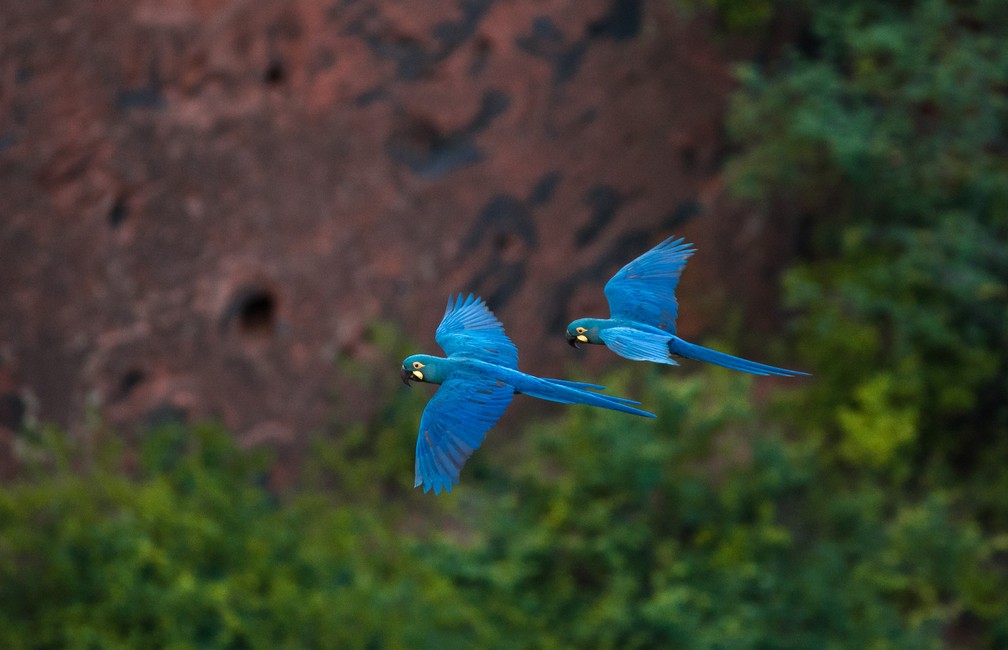RIO DE JANEIRO, BRAZIL – Biologist Neiva Guedes, the country’s leading expert on blue macaws, flew over and visited the Pantanal in Mato Grosso and Mato Grosso do Sul in September to assess the impact of patch burnings on the species.
She found a devastating scenario: extensive burned areas, loss of habitat, hungry animals, and evidence of increased capture of birds for sale by animal traffickers. For Neiva Guedes, the blue macaws may be back on the list of endangered species.
“There were mixed emotions when flying over the Pantanal for five days. At first, the feeling is one of desperation, that everything is lost. It is desolating. But, walking in the country, we had some surprises. Good and other bad feelings. Maybe all is not lost, but they [blue macaws] may be back on the list of endangered Brazilian species,” she told G1.

According to Neiva, president of the Blue Macaw Institute, the post-fire period resulted in hunger and loss of habitat for the species. In the Mato Grosso Pantanal, she mentions the region of Barão de Melgaço, where the largest population of wild blue macaws is found.
In Mato Grosso do Sul, she mentions the city of Miranda, west region of the state, where the Ecological Caiman Sanctuary is located, considered the largest center for the reproduction of the species.
As the macaws are “specialists” and eat only fruits of the ‘acuri’ and ‘bocaiuva’ palm trees, what was left as an alternative were the burnt fruits. Still according to Neiva, this caused injuries, similar to burns, in the cloaca (organ through which birds and some other animals excrete their organic waste: feces and urine). Another issue was the loss of nests, due to burnt trees.
In the criminal aspect, the specialists of the species are concerned about the continued trafficking of these animals. On September 26th, for instance, the police intercepted two Paraguayans trying to cross the border with a blue macaw in a plastic bag. The purpose was to sell the bird on the black market.
“The PMA [Environmental State Police] was then deployed and headed to Bela Vista. We realized it was an adult animal, and they [criminals] pointed out the exact spot where they caught the macaw, and we returned it to its habitat,” explained PMA lieutenant colonel Ednilson Queiroz.
Fighting fires
To contain the fires, firefighters perform ground-based operations, and helicopters discharge thousands of liters of water daily. According to the corporation, there are still no estimates of flame control, mainly due to prolonged dryness and drought, which has triggered forest fires even in areas that have not been affected for over a decade.
On Monday, October 5th, more than 60 firefighters from the Federal District reinforced the fire fighting in Corumbá, 444 km from Campo Grande. Days before, according to a decree by the Ministry of Justice and Public Safety, men from the National Force were also deployed to fight in the Mato Grosso do Sul Pantanal.
Source: G1

